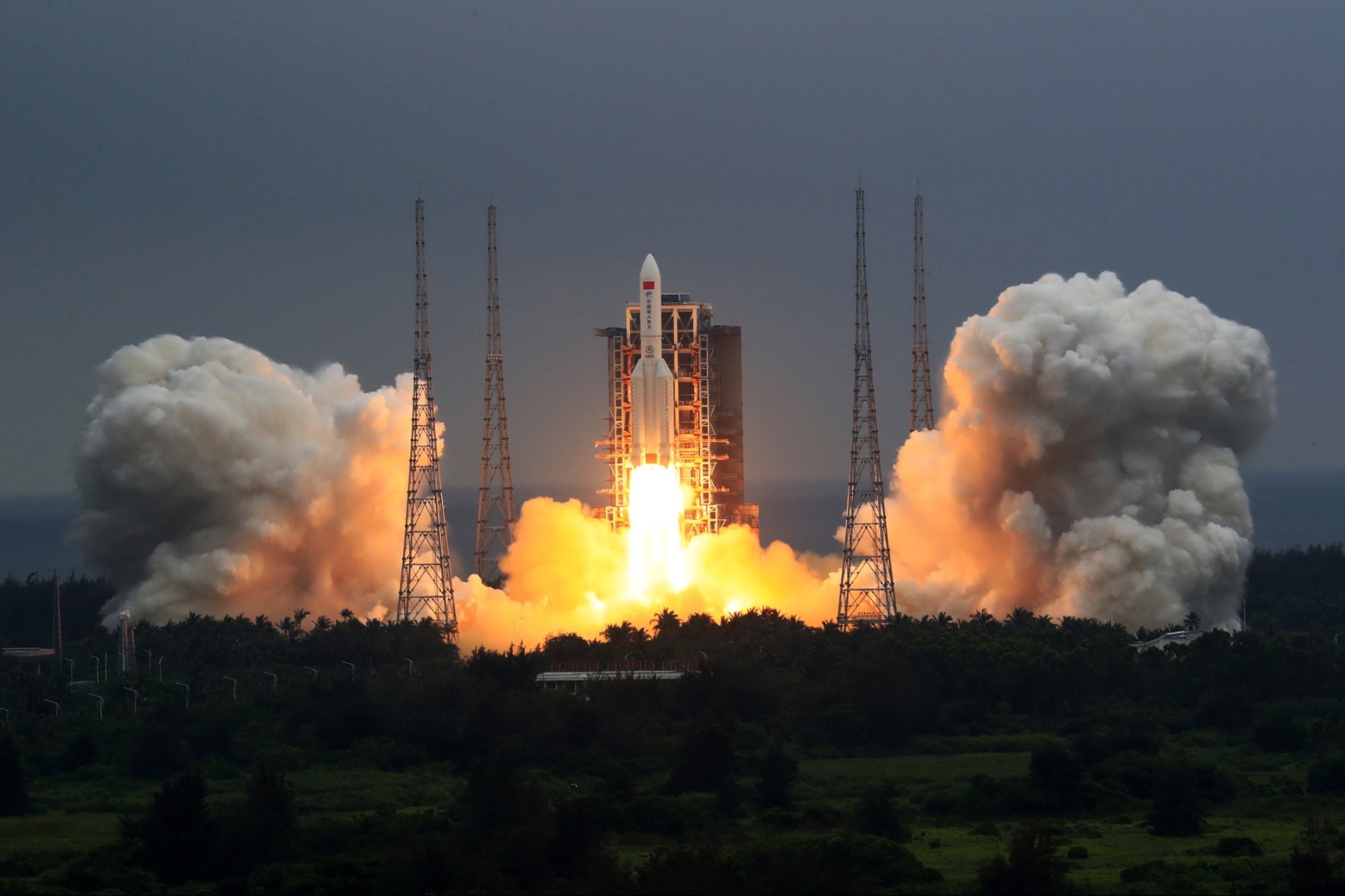
The 46,000-pound Long March 5B launched a core module into space last month.
2 min read
A Chinese rocket that recently sent a core module to China‘s Tianhe space station is headed back to Earth as debris — but scientists are unsure where the waste will happen, according to CBS News.
The 46,000-pound Long March 5B launched the module into orbit on April 28, but the core has since gone off on an undetermined flight path after separating from the rest of the rocket and is unpredictably orbiting the planet at over 17,000 miles per hour.
Related: Elon Musk Issues Dire Warning About Planned Mission to Mars
Scientists are reportedly uncertain where the parts of the core — which was built to withstand high temperatures — will land, although several U.S. agencies, including the U.S. Space Command and 18th Space Control Squadron, are tracking the body’s location.
“U.S. Space Command is aware of and tracking the location of the Chinese Long March 5B in space, but its exact entry point into the Earth’s atmosphere cannot be pinpointed until within hours of its reentry,” Lt. Col. Angela Webb, U.S. Space Command Public Affairs, told CBS News on Tuesday.
U.S. officials expect the debris to fall on Earth on Sunday, but experts say the debris is most likely to fall into the ocean, which covers more than 70% of the planet, or a remote area.
According to Space.com, the conundrum highlights larger issue at hand: orbital debris. Currently, there are 2,033 rocket bodies in Earth’s orbit — 546 of which belong to the U.S. and 169 of which belong to China (a majority — 1,035 rocket bodies, to be exact — belong to Russia). While U.S. rockets normally fire their engines to target re-entries over the Southern Pacific Ocean so that the debris doesn’t impact populated areas, China has experienced issues with re-entry in the past, and specifically with the Long March 5B.
In a press briefing on Wednesday, White House spokesperson Jen Psaki addressed the matter, saying, “The United States is committed to addressing the risks of growing congestion due to space debris and growing activity in space, and we want to work with the international community to promote leadership and responsible space behaviors.”
https://www.entrepreneur.com/article/371314

